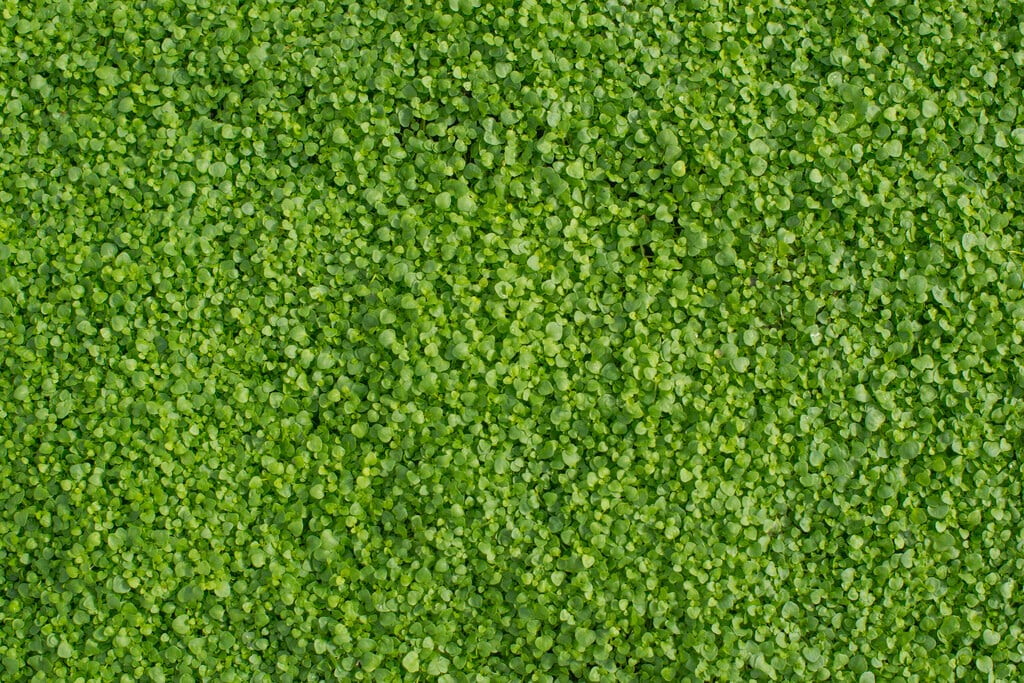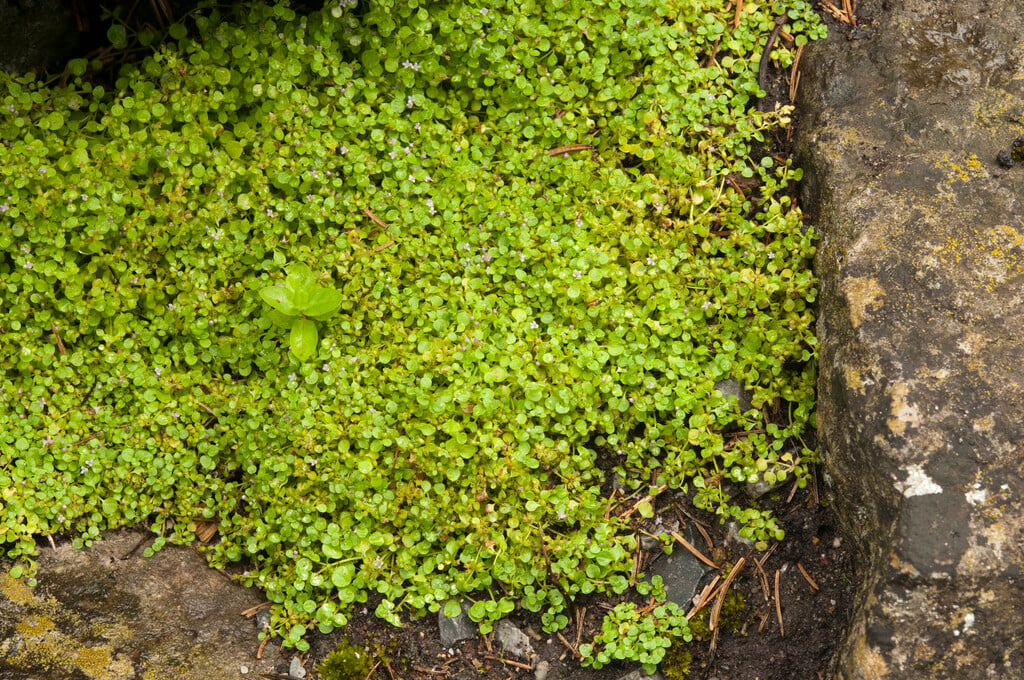Mentha requienii
Corsican mint
A vigorous, mat-forming perennial, about 1cm tall forming an extensive colony of slender, creeping, rooting stems, bearing rounded, peppermint-scented bright-green leaves to 7mm across, and in summer produces tubular lilac flowers in short spikes
Size
Ultimate height
Up to 10cmTime to ultimate height
1–2 yearsUltimate spread
0.1–0.5 metresGrowing conditions
Moisture
Moist but well–drainedpH
Acid, Alkaline, NeutralColour & scent
| Stem | Flower | Foliage | Fruit | |
| Spring | Green | |||
|---|---|---|---|---|
| Summer | Purple | Green | ||
| Autumn | Green | |||
| Winter |
Position
- Full shade
- Partial shade
Aspect
East–facing or North–facing or West–facing
Exposure
Exposed or Sheltered Hardiness
H7Botanical details
- Family
- Lamiaceae
- Native to GB / Ireland
- No
- Foliage
- Deciduous
- Habit
- Matforming
- Genus
Mentha are aromatic, rhizomatous perennials with opposite, toothed leaves and small tubular flowers in spikes of whorls in summer
- Name status
Correct
- Plant range
- Italy, France (Corsica)
How to grow
Cultivation
Adapts to a range of conditions, but best in moist but well-drained soil in partial shade. May have to potential to become a nuisance; restrict the root run in a deep container and plunge into the ground, or plant in a well chosen site where it can grow unrestricted. See mint cultivation for more information
Propagation
Propagate by division in spring or autumn
Suggested planting locations and garden types
- Cottage and informal garden
- Rock garden
- Wildlife gardens
- Ground cover
Pruning
Tidy or trim over after flowering if necessary
Pests
May be susceptible to sage leafhopper and caterpillars
Diseases
May be susceptible to powdery mildews, especially during drought conditions, and mint rust
Get involved
The Royal Horticultural Society is the UK’s leading gardening charity. We aim to enrich everyone’s life through plants, and make the UK a greener and more beautiful place.

